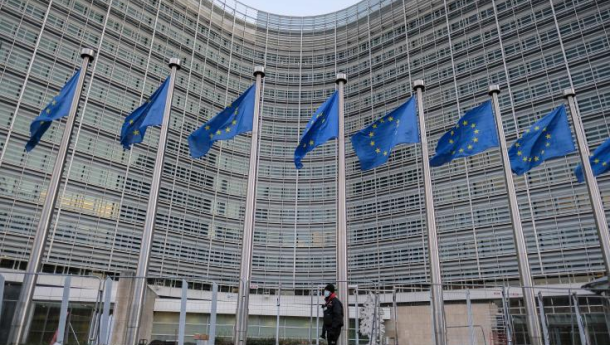
The European Commission has sent a reasoned opinion, the last step before a possible referral to the Court of Justice, to Cyprus and other member states regarding the agreement on a minimum 15% tax rate for multinational companies, as part of its regular package of infringement decisions which was published for May on Thursday.
The infringement package also includes a reasoned opinion sent to Cyprus and other member states regarding the transposition of legislation enhancing corporate transparency and reinforcing public scrutiny of multinational undertakings.
The Commission has also started a new infringement procedure against 18 member states, including Cyprus, regarding the proper application of the Data Governance Act.
Infringement procedures are meant to tackle the non-compliance of member states with EU law, and could end up with a case in front of the Court of Justice which can impose fines on a member state. Many of the procedures, however, are often solved before they reach that stage.
The first stage of the process is a letter of formal notice by the Commission, with member states having two months to respond. If the measures or answers given are not satisfactory, the Commission sends a reasoned opinion, after which there is the option of CoJ referral after another two months.
Taxation for multinationals and large domestic groups
The Commission has decided to send reasoned opinions to Cyprus (INFR(2024)0020), Spain, Latvia, Lithuania, Poland and Portugal for failing to notify measures for the transposition into national law of the directive on ensuring a global minimum level of taxation for multinational enterprise groups and large-scale domestic groups in the Union (Directive (EU) 2022/2523, known as the Pillar 2 Directive, referring to the G20 - OECD on global taxation).
The directive is the legal basis for the application of the part of the framework which requires that all major multinational corporations must pay a minimum effective tax rate of 15%. All EU Member States were required to bring into force the laws necessary to comply with the Pillar 2 Directive by 31 December 2023.
Most of the EU Member States have met these obligations. However, Spain, Cyprus, Latvia, Lithuania, Poland and Portugal have still not notified their national implementing measures. Therefore, the Commission has decided to issue a reasoned opinion to these Member States who now have two months to respond and take the necessary measures. Otherwise, the Commission may decide to refer the case to the Court of Justice of the European Union.
Reporting on corporate transparency
The Commission has also decided to send reasoned opinion to Cyprus (INFR(2023)0118), as well as to Belgium, Italy, Slovenia, Austria and Finland for failure to transpose completely the Public Country by Country Reporting Directive (Directive (EU) 2021/2101) amending the Accounting Directive (Directive 2013/34/EU).
The directive aims to enhance corporate transparency and reinforce public scrutiny of multinational undertakings, and provides for rules on the public disclosure of income tax information by certain multinational undertakings with a revenue of more than 750 million euro, including non-EU multinationals doing business in the EU.
The Commission notes in its announcement regarding the infringement procedure that delays in implementing this policy would impair the objective of enhancing corporate accountability on the income tax they pay in each member state, thus jeopardising the trust of citizens in the fairness of national tax systems.
The Commission has issues reasoned opinions to the six countries mentioned, which now have two months to respond and take the necessary measures. Otherwise, the Commission may decide to refer the cases to the Court of Justice of the European Union.
Data governance
Also, the Commission has decided to open infringement procedures against Cyprus (INFR(2024)2056) and 17 other member states (Belgium, Czechia, Germany, Estonia, Greece, France, Italy, Latvia, Luxembourg, Malta, Austria, Poland, Portugal, Romania, Slovenia, Slovakia and Sweden for not having designated the responsible authorities to implement the Data Governance Act, or that have failed to prove that the latter are empowered to perform the tasks required.
The Data Governance Act facilitates data sharing across sectors and EU countries for the benefit of citizens and businesses, by establishing rules for neutrality of data intermediaries that connect individuals and companies with data users.
Data intermediation activities have to be strictly independent of any other services that they provide, be registered and can be identified by a common EU logo. The Act will also facilitate the reuse of certain data held by the public sector and stimulate voluntary sharing of data.
Data altruism allows citizens to give their consent to make available data that they generate for the common good, for example for medical research projects. Data altruism organisations can decide to be included in a public register and use the common EU logo. They must have a not-for-profit character and meet transparency requirements as well as offer specific safeguards to protect the rights and interests of citizens and companies that decide to share their data.
Applicable since 24 September 2023, the responsible authorities are in charge of the registration of data altruism organisations and of monitoring the compliance of data intermediation services providers.
The Commission is sending a letter of formal notice to the 18 Member States concerned which now have two months to respond and address the shortcomings raised by the Commission. In the absence of a satisfactory response, the Commission may decide to issue a reasoned opinion.














 3287.99
3287.99 1275.09
1275.09
